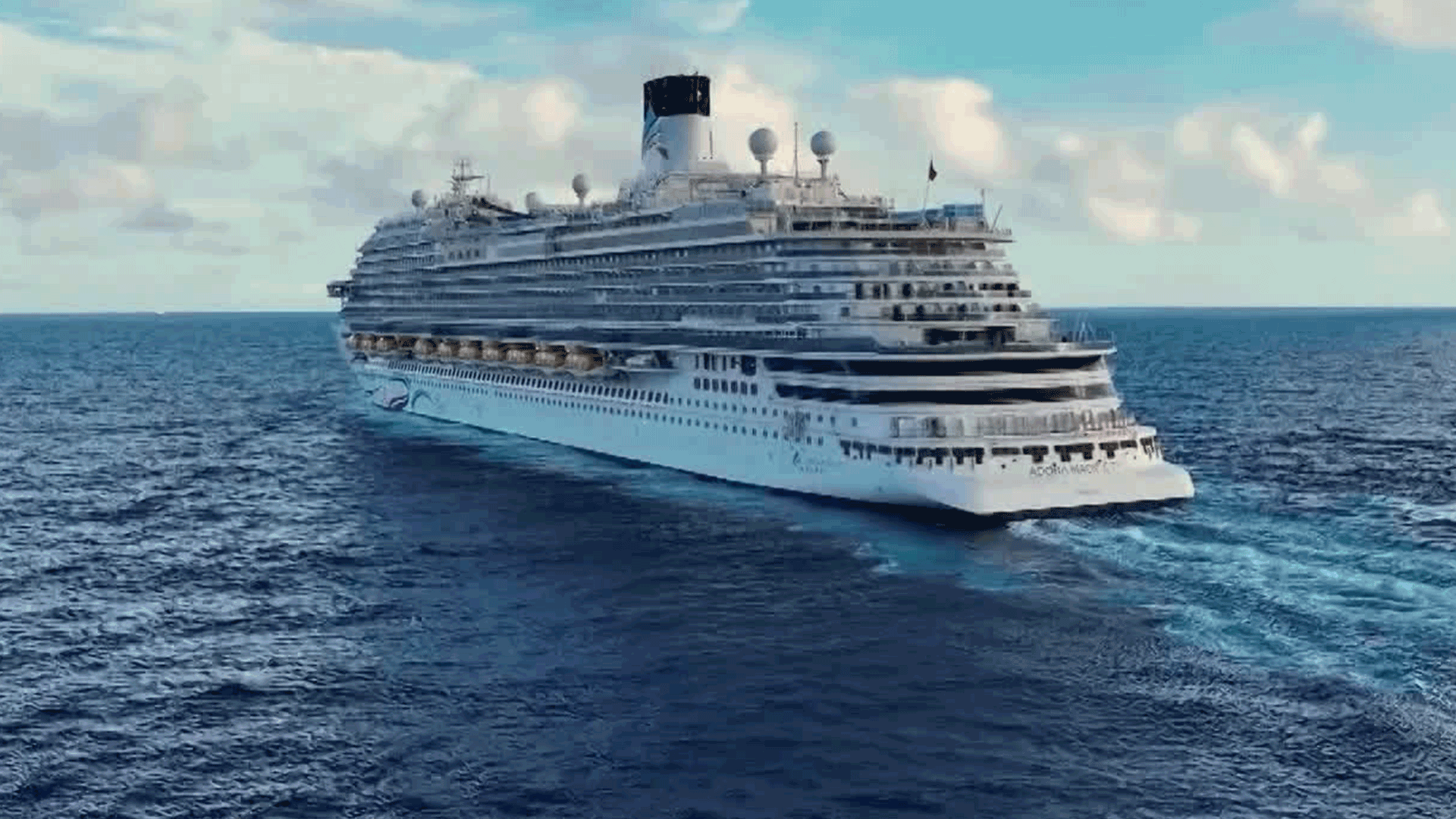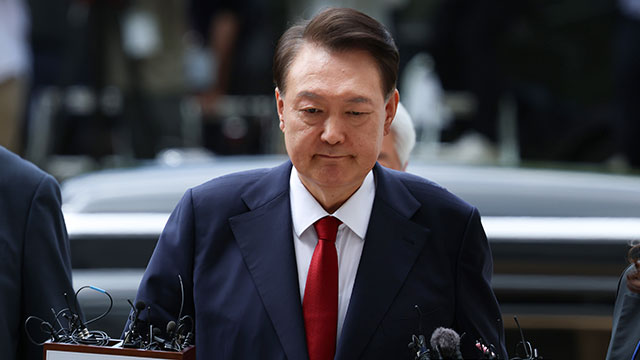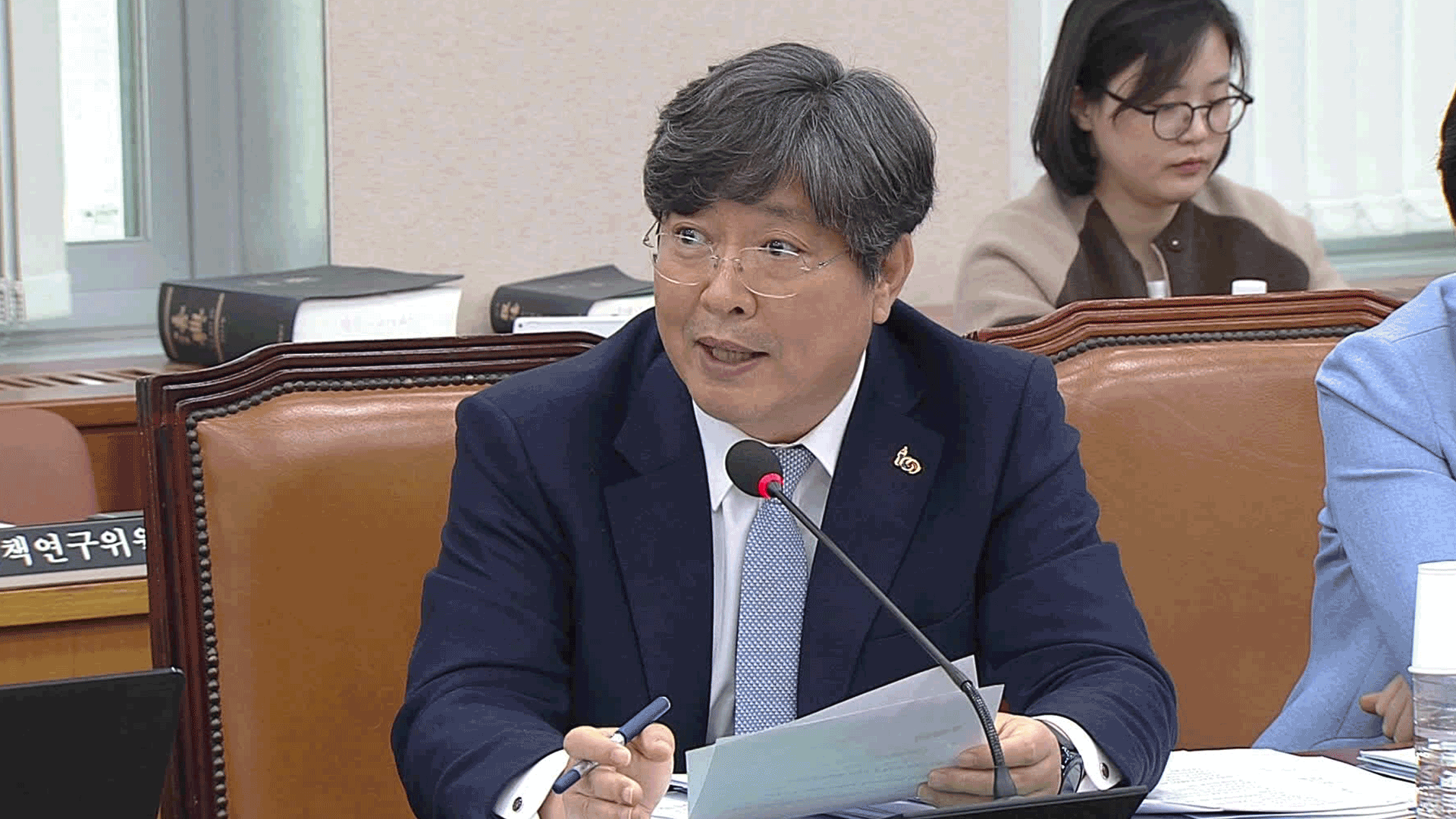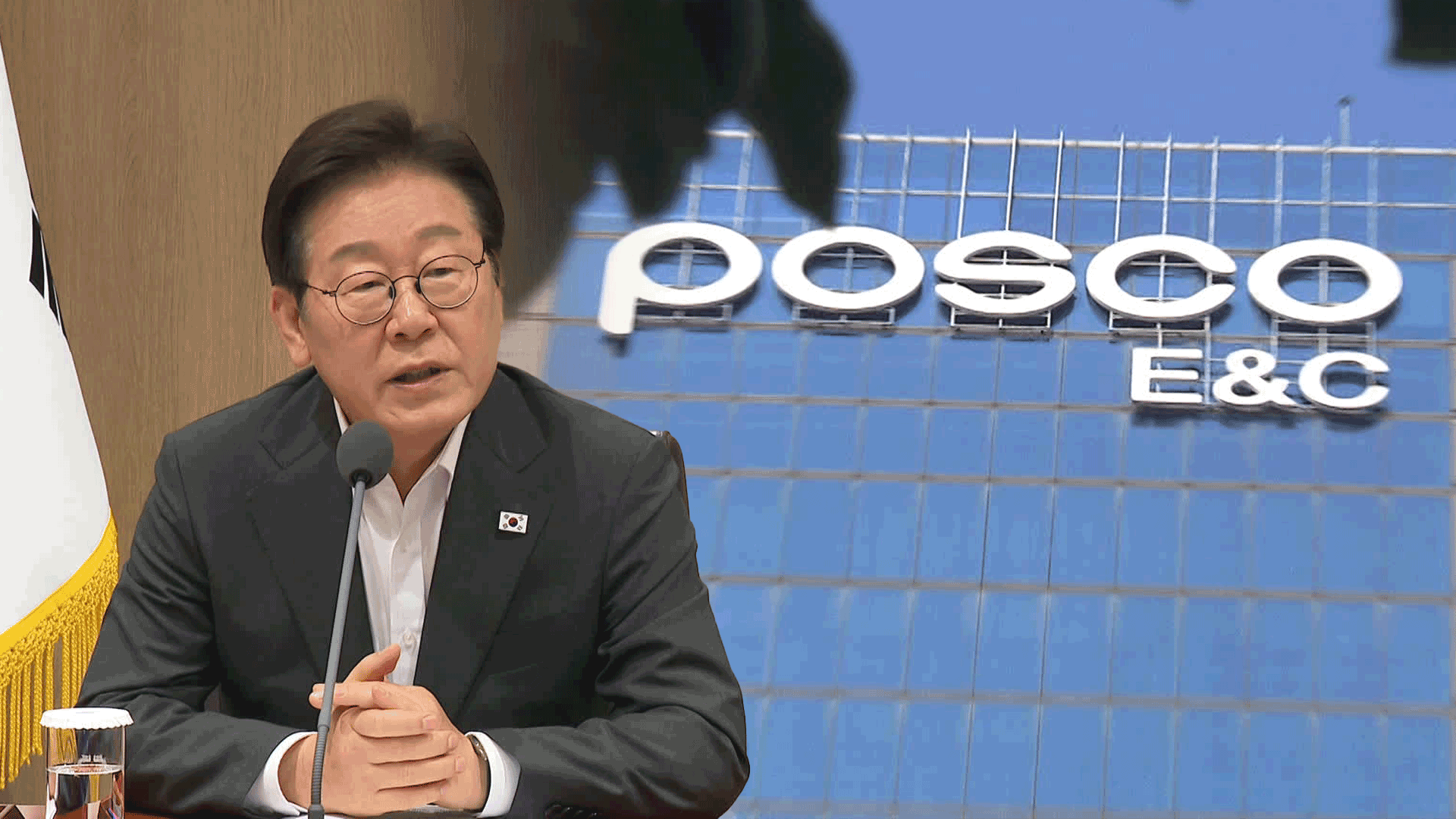[Anchor]
"Make American Shipbuilding Great Again."
Our negotiation team even made this hat, and shipbuilding has been a key industry that has served as a lever in the Korea-U.S. tariff negotiations from the beginning.
Of course, this is based on the U.S. belief in the excellence of our shipbuilding industry.
The shipbuilding industry is a competition among Korea, China, and Japan.
These three countries account for 92% of the global shipbuilding orders.
China, which is the overwhelming number one, has achieved this through an overwhelming supply strategy.
Japan has a single-digit market share but is aiming for a comeback.
Our country, caught between these two, may lag behind China in quantity, but is regarded as the best in the world in terms of high-value shipbuilding capabilities.
The Korea-U.S. "MASGA" project is a kind of industrial alliance where the U.S. seeks to utilize our shipbuilding technology in response to the threat from China.
This should also be an opportunity for us, but the variable is "capability."
Let's take a look at the fierce competition among the three countries in order.
First, we go to Beijing with reporter Kim Hyo-shin.
[Report]
At the Hudong-Zhonghua Shipyard in Shanghai, construction work on more than 20 ships is underway simultaneously.
Since delivering the world's largest LNG dual-fuel container ship to France in April this year, orders have been pouring in.
The Chinese shipbuilding industry, which used to compete on low prices, has now developed its technology and is also standing out in eco-friendly ships.
[Liu Xuedong/Deputy General Manager of Hudong-Zhonghua Shipbuilding: "The construction period has been shortened to 4-5 months from the initial stage to when the ship leaves the dock. It has significantly improved compared to the original shipbuilding situation."]
China swept the title of "world number one" last year in terms of ship orders ('order volume'), the amount produced ('construction volume'), and future prospects ('order backlog').
Additionally, last month, the top two shipbuilders in China completed their merger, announcing the birth of the world's largest shipbuilding company.
It is expected to account for one-third of the global shipbuilding order volume.
With state-led vertical integration in shipyards, equipment, offshore plants, and the defense industry, the shipbuilding ecosystem is also becoming more solid.
The strategy of becoming a "maritime power" aims to make marine industries, including shipbuilding, a driving force for national development.
[CCTV Report/Last month: "President Xi Jinping emphasized that building a maritime power is an important strategic task for realizing the great rejuvenation of the Chinese nation."]
China's shipbuilding industry, led by the "maritime rise," is also linked to the enhancement of naval power, becoming a major variable in the U.S.-China hegemonic competition.
This is Kim Hyo-shin from KBS News in Beijing.
"Make American Shipbuilding Great Again."
Our negotiation team even made this hat, and shipbuilding has been a key industry that has served as a lever in the Korea-U.S. tariff negotiations from the beginning.
Of course, this is based on the U.S. belief in the excellence of our shipbuilding industry.
The shipbuilding industry is a competition among Korea, China, and Japan.
These three countries account for 92% of the global shipbuilding orders.
China, which is the overwhelming number one, has achieved this through an overwhelming supply strategy.
Japan has a single-digit market share but is aiming for a comeback.
Our country, caught between these two, may lag behind China in quantity, but is regarded as the best in the world in terms of high-value shipbuilding capabilities.
The Korea-U.S. "MASGA" project is a kind of industrial alliance where the U.S. seeks to utilize our shipbuilding technology in response to the threat from China.
This should also be an opportunity for us, but the variable is "capability."
Let's take a look at the fierce competition among the three countries in order.
First, we go to Beijing with reporter Kim Hyo-shin.
[Report]
At the Hudong-Zhonghua Shipyard in Shanghai, construction work on more than 20 ships is underway simultaneously.
Since delivering the world's largest LNG dual-fuel container ship to France in April this year, orders have been pouring in.
The Chinese shipbuilding industry, which used to compete on low prices, has now developed its technology and is also standing out in eco-friendly ships.
[Liu Xuedong/Deputy General Manager of Hudong-Zhonghua Shipbuilding: "The construction period has been shortened to 4-5 months from the initial stage to when the ship leaves the dock. It has significantly improved compared to the original shipbuilding situation."]
China swept the title of "world number one" last year in terms of ship orders ('order volume'), the amount produced ('construction volume'), and future prospects ('order backlog').
Additionally, last month, the top two shipbuilders in China completed their merger, announcing the birth of the world's largest shipbuilding company.
It is expected to account for one-third of the global shipbuilding order volume.
With state-led vertical integration in shipyards, equipment, offshore plants, and the defense industry, the shipbuilding ecosystem is also becoming more solid.
The strategy of becoming a "maritime power" aims to make marine industries, including shipbuilding, a driving force for national development.
[CCTV Report/Last month: "President Xi Jinping emphasized that building a maritime power is an important strategic task for realizing the great rejuvenation of the Chinese nation."]
China's shipbuilding industry, led by the "maritime rise," is also linked to the enhancement of naval power, becoming a major variable in the U.S.-China hegemonic competition.
This is Kim Hyo-shin from KBS News in Beijing.
■ 제보하기
▷ 카카오톡 : 'KBS제보' 검색, 채널 추가
▷ 전화 : 02-781-1234, 4444
▷ 이메일 : kbs1234@kbs.co.kr
▷ 유튜브, 네이버, 카카오에서도 KBS뉴스를 구독해주세요!
- Tri-nation shipbuilding battle
-
- 입력 2025-08-06 00:30:39

[Anchor]
"Make American Shipbuilding Great Again."
Our negotiation team even made this hat, and shipbuilding has been a key industry that has served as a lever in the Korea-U.S. tariff negotiations from the beginning.
Of course, this is based on the U.S. belief in the excellence of our shipbuilding industry.
The shipbuilding industry is a competition among Korea, China, and Japan.
These three countries account for 92% of the global shipbuilding orders.
China, which is the overwhelming number one, has achieved this through an overwhelming supply strategy.
Japan has a single-digit market share but is aiming for a comeback.
Our country, caught between these two, may lag behind China in quantity, but is regarded as the best in the world in terms of high-value shipbuilding capabilities.
The Korea-U.S. "MASGA" project is a kind of industrial alliance where the U.S. seeks to utilize our shipbuilding technology in response to the threat from China.
This should also be an opportunity for us, but the variable is "capability."
Let's take a look at the fierce competition among the three countries in order.
First, we go to Beijing with reporter Kim Hyo-shin.
[Report]
At the Hudong-Zhonghua Shipyard in Shanghai, construction work on more than 20 ships is underway simultaneously.
Since delivering the world's largest LNG dual-fuel container ship to France in April this year, orders have been pouring in.
The Chinese shipbuilding industry, which used to compete on low prices, has now developed its technology and is also standing out in eco-friendly ships.
[Liu Xuedong/Deputy General Manager of Hudong-Zhonghua Shipbuilding: "The construction period has been shortened to 4-5 months from the initial stage to when the ship leaves the dock. It has significantly improved compared to the original shipbuilding situation."]
China swept the title of "world number one" last year in terms of ship orders ('order volume'), the amount produced ('construction volume'), and future prospects ('order backlog').
Additionally, last month, the top two shipbuilders in China completed their merger, announcing the birth of the world's largest shipbuilding company.
It is expected to account for one-third of the global shipbuilding order volume.
With state-led vertical integration in shipyards, equipment, offshore plants, and the defense industry, the shipbuilding ecosystem is also becoming more solid.
The strategy of becoming a "maritime power" aims to make marine industries, including shipbuilding, a driving force for national development.
[CCTV Report/Last month: "President Xi Jinping emphasized that building a maritime power is an important strategic task for realizing the great rejuvenation of the Chinese nation."]
China's shipbuilding industry, led by the "maritime rise," is also linked to the enhancement of naval power, becoming a major variable in the U.S.-China hegemonic competition.
This is Kim Hyo-shin from KBS News in Beijing.
"Make American Shipbuilding Great Again."
Our negotiation team even made this hat, and shipbuilding has been a key industry that has served as a lever in the Korea-U.S. tariff negotiations from the beginning.
Of course, this is based on the U.S. belief in the excellence of our shipbuilding industry.
The shipbuilding industry is a competition among Korea, China, and Japan.
These three countries account for 92% of the global shipbuilding orders.
China, which is the overwhelming number one, has achieved this through an overwhelming supply strategy.
Japan has a single-digit market share but is aiming for a comeback.
Our country, caught between these two, may lag behind China in quantity, but is regarded as the best in the world in terms of high-value shipbuilding capabilities.
The Korea-U.S. "MASGA" project is a kind of industrial alliance where the U.S. seeks to utilize our shipbuilding technology in response to the threat from China.
This should also be an opportunity for us, but the variable is "capability."
Let's take a look at the fierce competition among the three countries in order.
First, we go to Beijing with reporter Kim Hyo-shin.
[Report]
At the Hudong-Zhonghua Shipyard in Shanghai, construction work on more than 20 ships is underway simultaneously.
Since delivering the world's largest LNG dual-fuel container ship to France in April this year, orders have been pouring in.
The Chinese shipbuilding industry, which used to compete on low prices, has now developed its technology and is also standing out in eco-friendly ships.
[Liu Xuedong/Deputy General Manager of Hudong-Zhonghua Shipbuilding: "The construction period has been shortened to 4-5 months from the initial stage to when the ship leaves the dock. It has significantly improved compared to the original shipbuilding situation."]
China swept the title of "world number one" last year in terms of ship orders ('order volume'), the amount produced ('construction volume'), and future prospects ('order backlog').
Additionally, last month, the top two shipbuilders in China completed their merger, announcing the birth of the world's largest shipbuilding company.
It is expected to account for one-third of the global shipbuilding order volume.
With state-led vertical integration in shipyards, equipment, offshore plants, and the defense industry, the shipbuilding ecosystem is also becoming more solid.
The strategy of becoming a "maritime power" aims to make marine industries, including shipbuilding, a driving force for national development.
[CCTV Report/Last month: "President Xi Jinping emphasized that building a maritime power is an important strategic task for realizing the great rejuvenation of the Chinese nation."]
China's shipbuilding industry, led by the "maritime rise," is also linked to the enhancement of naval power, becoming a major variable in the U.S.-China hegemonic competition.
This is Kim Hyo-shin from KBS News in Beijing.
-
-

김효신 기자 shiny33@kbs.co.kr
김효신 기자의 기사 모음
-
이 기사가 좋으셨다면
-
좋아요
0
-
응원해요
0
-
후속 원해요
0















이 기사에 대한 의견을 남겨주세요.